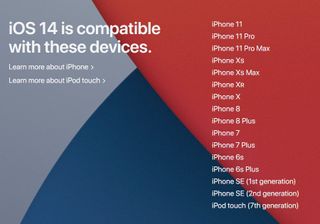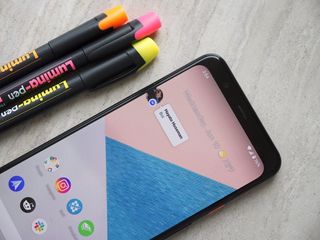With iOS 14, Apple once again crushes Android makers on software update support

It's time to talk about software updates again. Specifically, just how bad Android phone makers are doing compared to Apple's iPhone. And they are doing really bad in comparison.
Apple's iOS 14 will be available for a bunch of phones, but what's important is that phones from 2015 like the iPhone 6S and even the original "budget" iPhone SE from 2016 will be getting the update the same day that the brand-new iPhone 11 Pro gets it. That is awesome for anyone who uses those phones.
Even Google won't update an Android phone from 2015 and it owns the platform.
Meanwhile, there are just a handful of phones guaranteed to get Android 11 and there is a very good chance that you will have to wait at least six months after it is released before it comes to most of them. There are no phones from companies like Samsung (which drives the Android ecosystem almost single-handedly) built in 2015 or 2016 that will be getting Android 11.
This is terrible. This has to end. And even if you say you don't care, you really should.
Right about now is where I get the itch to talk about security. From that perspective, a platform update is a very important thing but Google has done a lot of work to help keep phones updated against things like malware and web exploits even if they aren't getting a real platform update. I applaud them for that. But that's not the only reason why platform updates are important, or even the main reason.
Without phones running the new software, developers aren't going to take advantage of the new features it brings. And this is what makes it all so bad.

Think about one really cool feature from Android 11, like conversations. Google has made it fairly simple to build an app that includes them which is good because a messaging app is already complex and extremely difficult to get right. But why should a company like Facebook or Signal or Telegram spend time to update their apps to use them when only a small percentage of users can benefit? The answer is that they won't because there are other features or improvements that affect more users.
Be an expert in 5 minutes
Get the latest news from Android Central, your trusted companion in the world of Android
You'll see apps start to use Android 11's features a year after its release when Galaxy phones and LG phones and Motorola phones get an update. You deserve better than that, but you can't really blame the developers for not spending time and money to support a few random Pixel and OnePlus users when the rest of the world can't use the stuff.
Apple is spending money to make sure older phones get updated and Samsung isn't. Nor is Google.
It's easy for Apple because it spends money to overbuild the internals that matter on the iPhone and own the rights to the chipset so it can update the OS anytime it likes. That's why you see phones like the 2020 iPhone SE with a processor powerful enough to run a laptop. It's overkill right now, but five years from now it will meet the minimum specs so Apple can keep customers happy and keep them spending when they eventually upgrade.
In the Android world the best you can find, on a consistent basis, are Google's own Pixel phones. Closely followed by Android One devices, and then the odd tiny-market phones like the Fairphone 2 that launched in 2015 on Android 5.1 and eventually got Android 9. That's not a big group of customers.
I'll say it once more: you deserve better. You deserve updates at the same pace and for the same length of time that Apple offers.

Jerry is an amateur woodworker and struggling shade tree mechanic. There's nothing he can't take apart, but many things he can't reassemble. You'll find him writing and speaking his loud opinion on Android Central and occasionally on Twitter.
